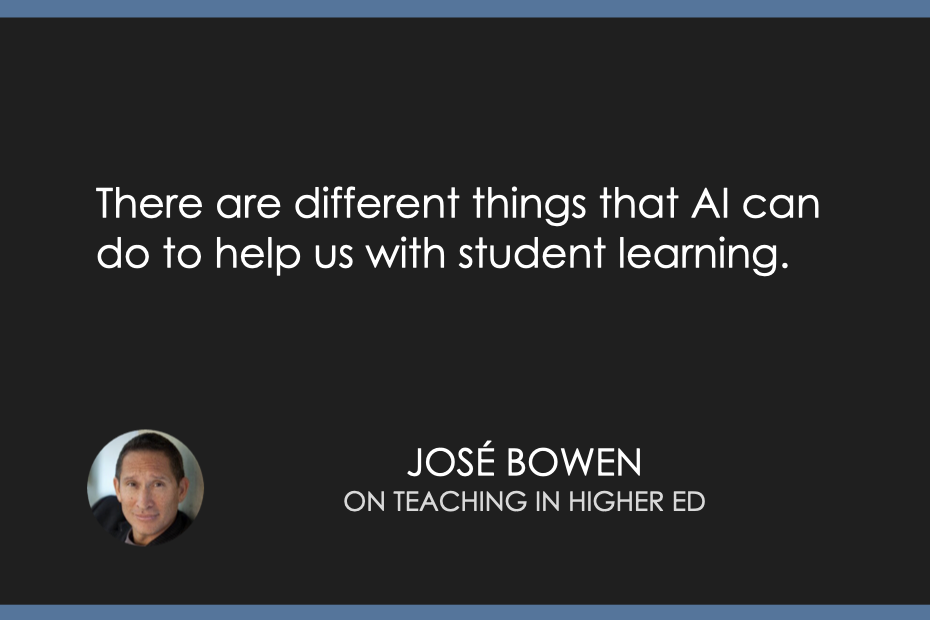
 Teaching in Higher Ed
Teaching in Higher Ed Teaching with AI
25 snips
May 16, 2024 José Bowen discusses the impact of AI on higher education, addressing issues like cheating, quality assessment, and job market changes. He emphasizes the importance of traditional skills for critical thinking and the role of AI in personalized learning. The podcast explores integrating AI to improve teaching methods while highlighting values like integrity and respect in education.
Chapters
Transcript
Episode notes
1 2 3 4 5 6
Introduction
00:00 • 3min
AI's Influence on Higher Education
02:56 • 7min
Reflecting on Traditional Skills and Critical Thinking
10:23 • 2min
Adapting Education for the AI Era
12:20 • 19min
Exploring Personalized Learning and Practice in Education
31:09 • 3min
Teaching Ethics and Critical Thinking with AI in Education
34:32 • 15min

